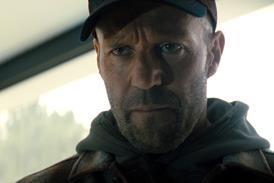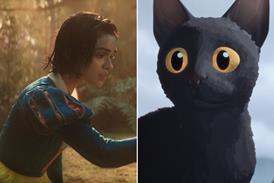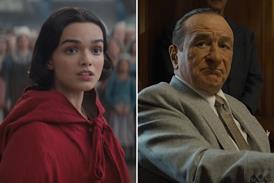Screen caught up with director Tsui Hark ahead of the world premiere in Venice of his competition entryDetective Dee and the Mystery of Phantom Flame, produced by Huayi Brother Media.
He also talked about his upcoming New Dragon Gate Inn, a 3D remake of his 1992 Dragon Inn, to be produced by Bona International Film Group and scheduled to start shooting in October.
Detective Dee and the Mystery of Phantom Flame is your second participation in Venice competition and also your 50th film. Is it a departure from your previous films?
I always wanted to make a Chinese detective story and I started thinking of making this film since the 1980s. Looking back my previous works and the different genres I’ve made, people might say that period action film is my specialty. My action films used to have three directions: ones with supernatural and fantasy elements; realistic action dramas and martial arts films with Chinese martial arts features. But in this film we have opened a new direction. We have added scientific explanations and logical reasoning to the plot, apart from the action and fantasy elements in the film.
The story of Judge Dee is known in the West and being adapted into English and American TV series, do you think the Western audience will find it easy to understand?
We have read Robert van Gulik’s novel Judge Dee but the backbone of the story is drawn from Chinese books. We wanted to make the story a Chinese story and make the setting and visual presentation filled with oriental elements. But the genre itself is a detective film. This combination is what we thought something different. At the same time, we tried to make the story simple and interesting that audiences of all ages and all cultures can understand.
You are one of the earliest Hong Kong filmmakers shifting base from Hong Kong to mainland China, since 2005. Do you feel you have to compromise your artistic expression in order to fit with the censorship and local regulations? Does that mean you also need to give up overseas sales in order to make films cater to mainland audience?
Of course we hope that we can always have good communication with the Chinese authority. Bbecause there is no film rating system, when we consider what kind of impact the film may bring to the audience, we need to think about the general public, viewers of all ages. But for the overseas market outside of China, we only need to consider how our films will be rated. The thinking is quite different.
When we sent in the script to the censors, they recruited five history experts to review the script. Because we are dealing with an historical figure, they took it very seriously and have requested that our story be as faithful to the historical reality as possible. They have even questioned that the cast of some character are too young for the historical figures. And we had to communicate with them, made sure they understand our creative ideas for the story and our reasons for the cast.
Your next project will be shot entirely in 3D with Red cameras. How has the preparation work been going? Is the Asian film industry ready for 3D filmmaking?
Our 3D stereography team has gone through a training period and they are more familiar with the technology and operation now. Avatar visual effects stereography director Chuck Comisky is our stereography consultant. He had worked with us in the training process and will participate in the shooting too. I think in China or Asia, the potential of 3D is very big and there are a lot of good topics for 3D shooting.
But we face three major challenges. First, new technology and new equipment are still being developed. There are always new things coming out. Filmmakers and crew find it hard to choose the right tool for their projects. Then, we are extremely in lack of talents handling the technology. Third, there has not been a standard for quality 3D screening facility, especially in China, which may largely affect the viewing experience.






















No comments yet